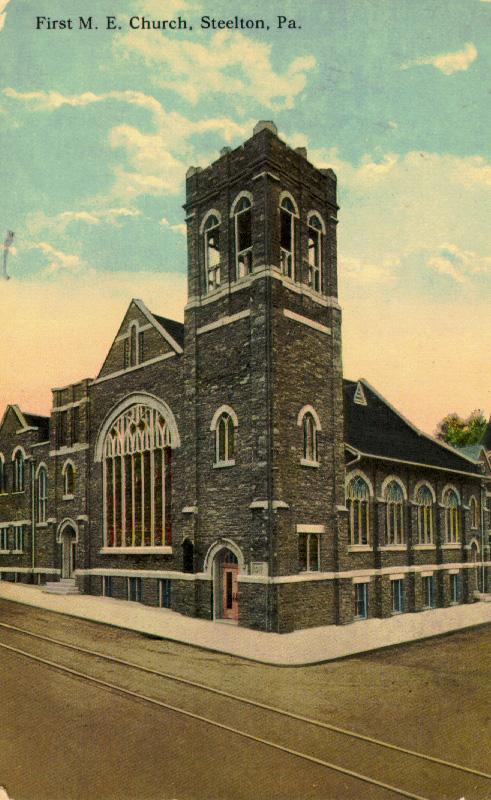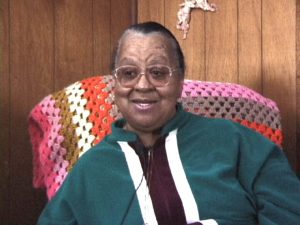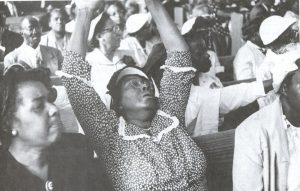The church is the heart of the Sunday celebration. Historically, it has been the center of political, social, economic, religious and educational affairs. The African American church was not only spiritually important, but also culturally unifying. It was the heart of the African American community. In her text, Evelyn Higginbotham states, “The public discourse of church leaders and members, both male and female, had historically linked social regeneration, in the specific form of racial advancement, to spiritual regeneration” (345). The church fought against the social injustices that African Americans faced in America. It was also a sanctuary of comfort, where everyone could express themselves freely and unite culturally in their beliefs and life practices. Morris states, “The church was a place to observe, participate in, and experience the reality of owning and directing an institution free from the control of whites. The church was also an arena where group interests could be articulated and defended collectively. For all these reasons and a host of others, the black church has served as the organizational hub of black life” (5). The church is influential for not only physically unifying its congregation, but emotionally and spiritually tying everyone together.
As the center of African American life, the church gives spiritual guidance as well as a sense of equality among peers. Because most African Americans did not feel equal in the presence of whites, the church was a comfort zone where no one had to feel inferior. James Baldwin speaks of his experience as a minister in The Fire Next Time, “Nothing that has happened to me since equals the power and the glory that I sometimes felt when, in the middle of a sermon, I knew that I was somehow, by some miracle, really carrying, as they said, ‘the Word’-when the church and I were one. Their pain and their joy were mine, and mine were theirs-they surrendered their pain and joy to me, I surrendered mine to them-and their cries of ‘Amen!’ and ‘Hallelujah!’ and ‘Yes, Lord!’ and ‘Praise His Name!’ and ‘Preach it brother!’ sustained and whipped on my solos until we all became equal, wringing wet, singing and dancing, in anguish and rejoicing, at the foot of the altar”(33-34). These emotions were not exclusive to Baldwin’s church. Barbara Jeane Baker, a member of Monumental A.M.E. Church in Steelton, PA, plays an active role in her church choir and in singing for the glory of God. Here she talks about personal experiences worshipping God.
“You know, I have a little prayer…I try to remember to say it all the time, on the wall in my room. It says:
‘Good morning God.
You’ve ushered in another day, untouched and freshly new.
So here I come to ask you God if you’ll renew me too.
Forgive the many errors that I made yesterday
And let me try again to walk closer in thy way.
But father I am well aware I can’t make it on my own,
So take my hand and hold it tight, for I can’t walk alone.’
Amen to that. And I mean that from my heart.”
The last line in Baker’s poem encapsulates the idea that church and God are essential to the lives of African Americans. The importance of the church in the life of the African American was shared universally throughout the south and the north. Churches also produced a great sense of African American identity through worship.
“Most of their congregations sang the same songs, were inspired by similar sermons, and recognized the importance of cooperation and of giving financially to their churches and other worthy causes. Therefore, it can be said that a common church culture existed in the black community” (Morris 11). This dynamic is expressed by the relationships between the members of the church and their community. “The black church, a well-established institution, produced and thrived on charismatic relationships between minister and followers” (Morris 7). The meaningful discourse exchanged in service created a cultural practice that strengthened the African American bond, including the practice of call and response. African American women play an influential role in the church community. They help establish rapport between the minister and congregation. Women of the church run many of the social functions of the church.
Higginbotham explains, “They rejected a model of womanhood that was fragile and passive, just as they deplored a type of preoccupied with fashion, gossip, or self-indulgence. They argued that women held the key to social transformation, and thus America offered them a vast mission field in which to solicit as never before the active participation of self-disciplined, self-sacrificing workers. Through the convention movement, black Baptist women established a deliberative arena for addressing their own concerns” (346). African American women aided in the social development as well as the spiritual guidance of the members of the church. “Committed to the causes of racial self-help and advancement, the convention movement among black Baptist women contributed greatly to the church’s tremendous influence in both the spiritual and secular life of black communities” (Higginbotham, 218). As leaders and faithful followers of the church, the women’s Sunday freedoms allowed social development for them as people and also aided in the development of the African American community with the church as its foundation.
A prime example of leadership within the Steelton community is Mother Thelma Wright, a member of Shiloh Church of Christ, exemplifies the service of women in the church. As a “Mother” of the church, she talks about her important role with the women of her community. She explains:
[A mother of the church…] “is a helper to the pastor. And in Titus Scripture, it says that the aged women teach the young women how to be chase, how to keep their own families, how to treat their husbands, how to live holy lives. We’re teachers for the young women. We set examples for the young women in the church. And we can take care of things that the pastor, where women are concerned, where the pastor can’t…Well, some women would free from telling the pastor about her sexual life or sexual desires or things that she wouldn’t want to tell a man, so she’d tell a a mother.” (Wright transcription 17)
Not only does Mother Wright preach the word of God, but she also provides spiritual guidance and love to many women in correctional facilities. She’s spent 25 years as God’s servant with the Prison Ministry. We had the pleasure to witness her sharing her faith by praising the Lord with the women of the Dauphin County Prison.
Click here to witness Mother Wright in the Dauphin County Prison


